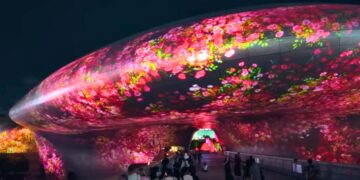Last Updated on 1 year by admin
Almost nobody—literally no one of the legal age—will be able to escape the South Korean drinking culture if you decide to reside and live in South Korea. Despite knowing the danger of alcoholism, and even with countless drinking problems, including the recent DUI drunk driving involving a BTS member, the drinking culture in South Korea remains strong. With soju and other Korean alcoholic drinks taking over the world, you might be curious as to why Korean drink so much? Today, we’re going to dive deep into the core of this habit.
Understanding Korean Drinking Culture
Recently, a member of Kpop megastar BTS was booked for riding his electric scooter home while intoxicated. He rode his scooter after attending a social gathering, eventually falling down near his house.
Fortunately, no one was hurt, but the public strongly condemned the Kpop idol, labeling the incident as a case of drunk driving or DUI. This reaction stems from the fact that he navigated through crowded traffic while drunk, posing a potential danger not only to himself but also to others.
This incident then raises the question: do South Koreans really enjoy drinking alcohol that much? The answer is both yes and no. While not everyone in South Korea enjoys alcoholic beverages, drinking is generally seen as a cultural expectation for those living in the country.
Statistics indicate that most South Korean adults (of legal age) consume approximately 14 shots of alcohol each week. This places the country on par with nations known for high alcohol consumption, such as Russia and the U.S.
Indeed, many alcoholic beverages widely available in South Korea have a relatively low alcohol by volume (ABV). South Korean #1 alcoholic drink, soju, normally contains 16 – 25% of alcohol. It is relatively small compared to heavy drinks like whiskey or vodka.
However, the country still ranks among those with the highest alcohol consumption rates. It then resulted in various issues in health issues caused by alcohol and problematic drinking habits, including the recent DUI case shown by the BTS member.
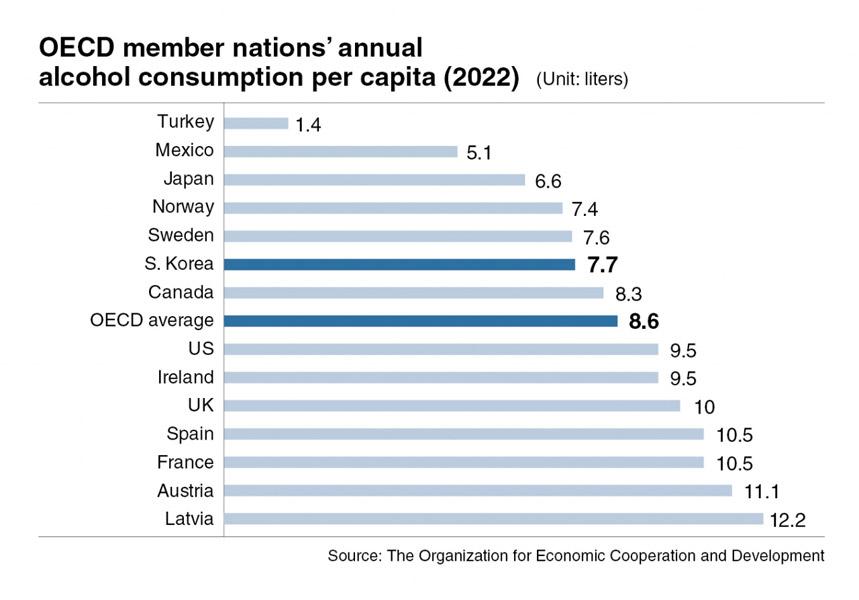
From Soju, Makgeolli, and Beers: Why Korean Drink So Much?
So, if it’s really that dangerous, why do Korean drink so much?
Understanding Korean drinking culture goes much deeper than what you see in Korean dramas. In South Korea, drinking is considered a social expectation, naturally occurring between friends and colleagues. The higher your alcohol tolerance, the more people praise you, almost as if it’s a commendable skill.
And there are several points to understand why Korean drink so much soju, beer, and other alcoholic beverages on a daily basis.
1. Historical Doctrine
First of all, the core of Korean drinking culture dates back to the country’s ancient history. The historical roots of Korean drinking culture run deep, with literary works and archives often depicting alcohol as essential for health and life.
The “Encyclopedia of Korean Culture” notes that alcohol was considered a remedy and a social tool. Ancient texts from the Goguryeo era also praise alcohol’s benefits, such as “Alcohol is the best of a hundred medicines.” Then, there was Confucianism, which further embedded the idea of drinking as a virtue, influencing social norms.
That is why, in Korea, as in China and Japan, alcohol became a means to strengthen relationships, with drinking rituals reflecting sincerity and affection in social and business contexts.
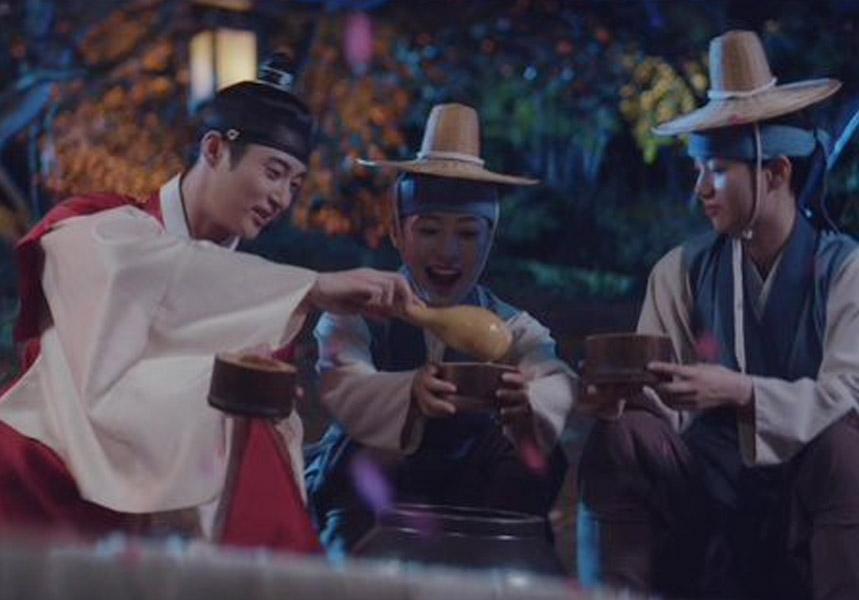
2. Social Expectations
Secondly, since drinking has been embedded in every core of South Korean culture, Koreans will expect you to have a certain level of favoritism and tolerance in Korean alcoholic drink, soju, at the very least.
In almost every social gathering in South Korea, from the workplace to informal get-togethers, you will always see Korean soju presented on the table. That is because South Korean believe that drinking will ease the process of this social gathering so people can get closer to each other more easily.
Therefore, skipping or even refusing to drink the soju—or any drink—presented in front of you is considered rude during these social gatherings. Unless you have health issues or are currently taking specific medications.
In South Korea, some people even hail those who have a strong tolerance to alcohol. Hence, it also creates another level of social expectations. This is one of the reasons why Korean drink so much.
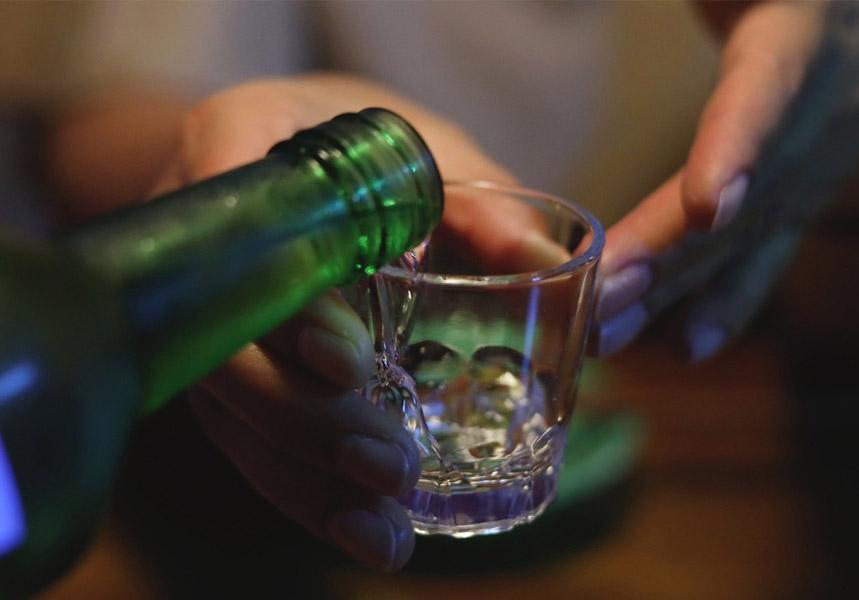
3. Wind Down and Relax
Thirdly, another reason why Korean likes to drink soju and other alcoholic beverages so much is because they can wind down and relax.
As we all know, South Korea is a country full of high expectations and pressure. This is a country where the people must endure all kinds of demands—both individual and social—in their professional and private lives. Therefore, most Korean citizens are coping in their own way to live with all these massive expectations by adopting this drinking culture.
With the help of alcohol, after facing all those demands and pressure, they can finally wind down and relax. Eventually, alcohol consumption is often seen as a way to relieve stress and escape the pressures of daily life in South Korea, at least temporarily.
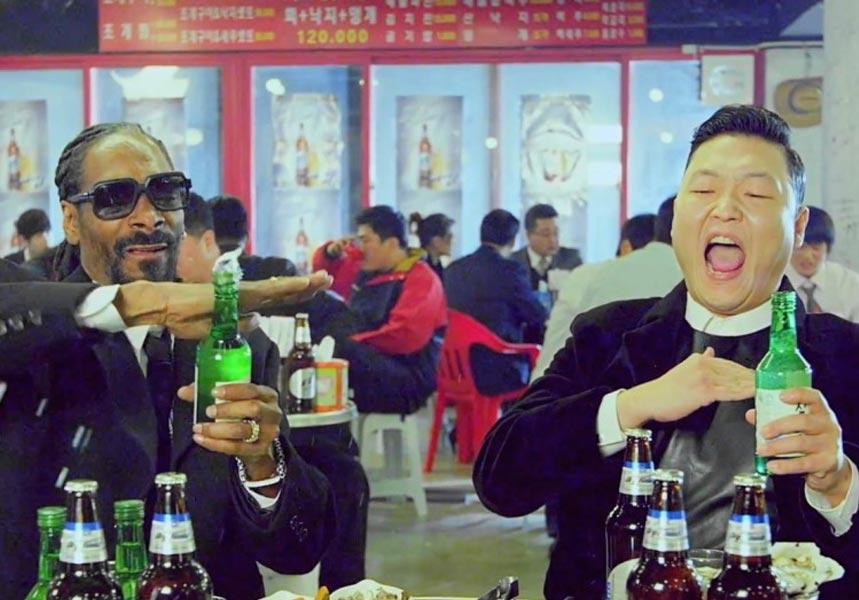
4. Korean Soju: a “Healthier” Alcoholic Drink
Due to the rising awareness of the danger of alcoholism, most Korean will find a way to maintain this drinking culture but live a healthier life. And so, Korean Soju became the favorite alcoholic drink in South Korea. And even more so after manufacturers claimed to have added more minerals and vitamins to their products.
Most Korean Soju manufacturers promote Korean Soju as a healthier choice of alcoholic drink due to the added ingredients that will reduce hangover, helping you wake up and function well the next day. And so, it’s common to find ingredients like red ginseng, ginger, and potassium in Korean Soju drink.
This “healthier” way of winding down is, among other reasons, Korean drink Soju so much.
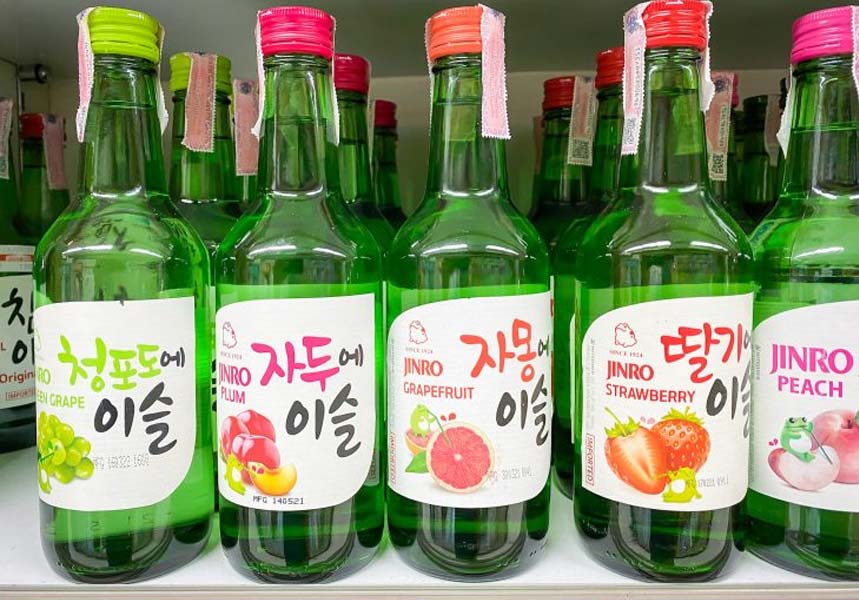
5. Cheap and Easily Accessible
Finally, due to the drinking culture, alcoholic drinks—particularly Korean soju—are cheap and easily accessible in the country.
In South Korea, Soju is incredibly affordable and widely accessible. A 360-milliliter bottle typically costs around 1,380 KRW in hypermarkets and 1,950 KRW in convenience stores, making it just under $1.50 USD.
This low price, combined with the availability of alcohol 24/7, makes soju a popular choice for social bonding. Its low alcohol content allows people to enjoy a drink without it significantly affecting their daily activities.
For college students and professionals, having a drink during exams or corporate meetings is not only acceptable but also an inexpensive way to unwind and connect with others. This low price and easy access that accommodates the drinking culture among the reasons why Korean drink so much in their gatherings.
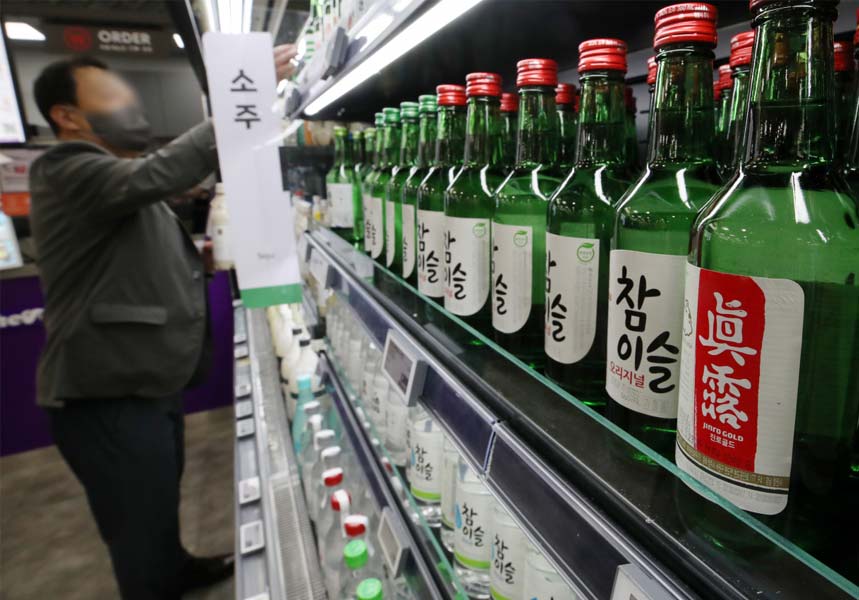
Finally, understanding Korean drinking culture requires looking beyond just the act of consuming alcohol.
While many factors contribute to why Koreans drink so much, there is now growing awareness in South Korea about the dangers of excessive drinking. The government has implemented some measures, like stricter regulations on drunk driving, but overall, cultural norms around alcohol consumption have been slow to change.
Nonetheless, the pandemic did see a shift towards solo drinking at home, reflecting changing habits in the face of social distancing.
That is why as South Korea continues to evolve, so too does its relationship with alcohol, balancing the importance of tradition with the need for healthier practices.
Related Posts
5,725 total views, 18 views today


